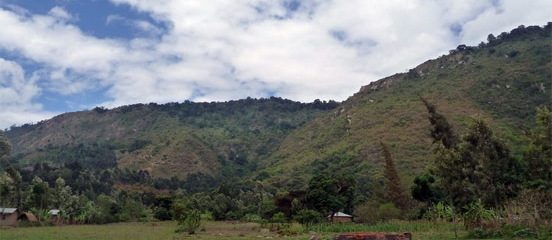Postcard from Tanzania: Struggles for smallholder farmers
11 April 2013

By Julia Amoo
As a fundraiser I spend most of my time demonstrating to donors how their money will help to improve the quality of life of people in developing countries.
To do this well we need to consult the communities we want to support to make sure our projects address their needs – and talk to organisations that can help us deliver this work.
So last month I visited the Morogoro region of Tanzania to gather evidence of smallholder farmers’ needs, for a project looking to improve their links with markets. I was keen to see how the country is dealing with challenges such as poverty and hunger.
Assessing need
Nicknamed the breadbasket of Tanzania, Morogoro is famous for its fertile lands and plentiful rainfall. The journey from Dar es Salaam, Tanzania's largest city, was long but I was pleasantly surprised to see lots of children in their uniforms walking to school and almost none selling goods at the roadside - a positive sign of development.
In the village of Kiyegeya we met the people we’re hoping to help with this project: smallholder farmers who currently grow enough food survive on, but not to sell.
Interestingly, they were all aware of the benefits that selling surplus produce at local markets could bring and were eager for any support available.
But many still complained of not having enough to eat or enough money to send their children to school. They wanted more support to increase their crop yields, as they don’t have access to the latest agricultural practices.
The missing link to address these problems is the ‘start up’ capital to pay for essentials like training, fertilisers, packaging and storage – or the transport to markets that enables smallholder farmers to become part of the supply chain. This is exactly what I’m hoping to convince a UK donor to pay for.
Working with grassroots organisations
A few days later we met with Trufood, a local organisation supporting smallholder farmers to produce and sell orange flesh sweet potato – a crop rich in vitamin A, vital for child development and maternal health. Their challenges were typical of many small organisations: the need to raise more funds and better financial management, both areas of strength for Farm Africa.
The benefits of collaborative working are clear to see, and hopefully it is an approach that more donors will commit to supporting in the long term.
Julia is Farm Africa’s programme funding manager
Find out more about our work in Tanzania

